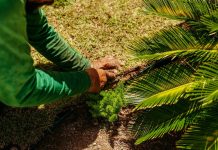
Pancreatic cancer is challenging to treat due to the thick scar tissue (fibrosis) surrounding tumors, making it difficult for drugs to reach the cancer cells.
Researchers at the Salk Institute have discovered that a class of anti-cancer drugs called HDAC inhibitors can be effective against pancreatic cancer by modulating the activation of fibroblasts, the cells forming the scar tissue.
When pancreatic tumors form, the pancreas activates fibroblasts, which create a protective scar tissue layer around the cancer.
While this can prevent cancer spread, fibroblasts also produce signaling molecules that tumors exploit to grow.
In their research, the team explored the impact of HDAC inhibitors on fibroblasts. They found that these inhibitors prevented fibroblast activation and their tumor-promoting behavior in isolated cells.
In mouse experiments, the HDAC inhibitor entinostat reduced fibroblast activation around pancreatic tumors and slowed tumor growth. Additionally, analyzing data from human pancreatic cancer patients revealed that higher levels of HDAC1 in fibrotic tissue correlated with worse outcomes.
The researchers identified specific genes affected by HDAC inhibitors, suggesting potential drug targets to limit fibroblast activation while preserving their presence, which could be beneficial in pancreatic cancer treatment.
The study highlights the potential of HDAC inhibitors to address the fibrotic barrier in pancreatic cancer, although further research is needed to optimize drug delivery and combination therapies for clinical applications.
If you care about pancreatic cancer, please read studies about new vaccine to prevent pancreatic cancer, and new therapy to kill pancreatic cancer from within.
For more cancer information, please see recent studies about herb that may help treat pancreatic cancer, and results showing how to detect pancreatic cancer at treatable stages.
The research findings can be found in Nature Communications.
Copyright © 2023 Knowridge Science Report. All rights reserved.



